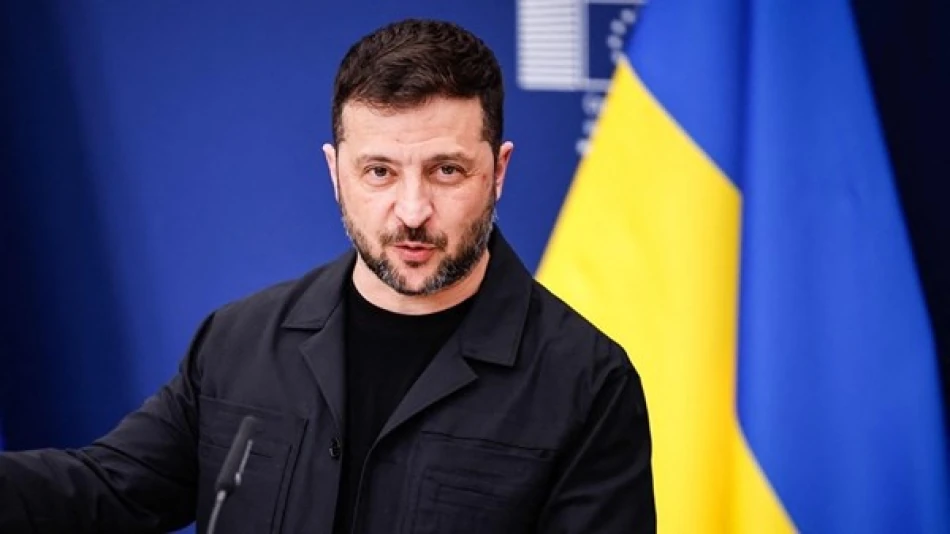
Zelensky Rebuffs Putin's Proposal for Talks in Moscow, Prioritizes Ukraine's Sovereignty
Zelensky Rejects Putin's Moscow Invitation as Diplomatic Stalemate Deepens
Ukrainian President Volodymyr Zelensky has firmly rejected Vladimir Putin's proposal to travel to Moscow for peace negotiations, instead inviting the Russian leader to Kyiv while Ukraine remains under daily bombardment. The exchange highlights the fundamental disconnect between both sides as diplomatic efforts to end the nearly three-year conflict continue to falter.
The Battle Over Venue Reflects Deeper Power Dynamics
Speaking to ABC Radio on Friday, Zelensky made his position clear: "Putin can come to Kyiv. I cannot go to Moscow while my country is under rocket bombardment and daily attacks." The Ukrainian leader's response underscores how even basic diplomatic protocols have become weapons in the broader information war.
Putin had announced his readiness for high-level talks the same day, despite acknowledging their likely futility. His insistence that Moscow would be the "best place" for such a meeting reveals Russia's continued attempt to project strength and legitimacy, even as its forces struggle to achieve decisive battlefield victories.
Historical Precedent Shows Venue Matters
The dispute over meeting locations echoes historical diplomatic standoffs where symbolic gestures carried enormous weight. During the Cold War, summit locations were carefully negotiated to avoid any appearance of one side capitulating to the other. Zelensky's refusal to travel to Moscow while Ukraine faces bombardment mirrors how wartime leaders have historically avoided meeting on enemy territory during active hostilities.
Trump's Failed Mediation Attempts Signal Broader Challenges
The latest diplomatic impasse comes despite reported efforts by former President Donald Trump to broker a meeting between the two leaders. Trump's unsuccessful attempts to facilitate Putin-Zelensky talks demonstrate the complexity of mediating between parties with fundamentally incompatible positions on Ukraine's sovereignty and territorial integrity.
This pattern reflects broader challenges facing international mediators in conflicts where one side seeks regime change or territorial conquest. Unlike trade disputes or border demarcation issues, the Russia-Ukraine war involves existential questions about statehood that resist compromise solutions.
What This Means for Future Peace Prospects
The venue dispute reveals how far apart both sides remain on basic questions of legitimacy and power dynamics. Putin's invitation to Moscow suggests Russia still views itself as negotiating from a position of strength, while Zelensky's counter-invitation to Kyiv asserts Ukrainian sovereignty and moral authority as the defending party.
For international observers and potential mediators, this exchange signals that meaningful negotiations remain unlikely without significant shifts in military realities or domestic political pressures. The symbolic nature of the venue dispute indicates that both leaders are still primarily focused on domestic and international audiences rather than serious compromise.
The practical implication is that the conflict will likely continue grinding forward militarily rather than reaching a negotiated settlement in the near term. Neither side appears ready to make the symbolic concessions that would enable face-to-face diplomacy, let alone the substantive compromises that peace would require.
Most Viewed News

 Layla Al Mansoori
Layla Al Mansoori






